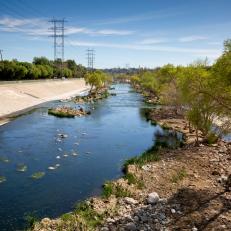New Protections for the Environment on the Horizon
Since President Biden took office, a slew of environmental regulations have been announced, which hopefully will take the needed action to protect the earth–and its inhabitants. Alongside ordering the review of more than 100 rules concerning endangered species, water, air, and climate change, the new administration has pledged to put the planet first.
Biden’s policies have already come under fire, not simply from the fossil fuel industry, but also from critics who say the regulations will threaten jobs. Biden has countered the arguments by saying ‘millions’ of Americans will be able to get jobs "modernizing our water systems, transportation, [and] our energy infrastructure to withstand the impacts of extreme climate".
Shop This Look
Oil
In one of his first executive orders as President, Biden rescinded the construction permit for the Keystone XL Pipeline. The proposed 1,200 mile-long pipeline would have carried oil from Alberta, Canada, down to Nebraska, running through Native American land. The pipeline was approved by the Canadian government under Barack Obama’s presidency, but Obama did not issue the permit required, on advice of the EPA. Despite concerns, former President Trump had approved the pipeline in 2020.
Biden has also issued orders aimed to freeze new oil and gas leases on public lands, as well as doubling offshore wind-produced energy by 2030, although the oil and gas freeze has already proved controversial in the energy industry.






















